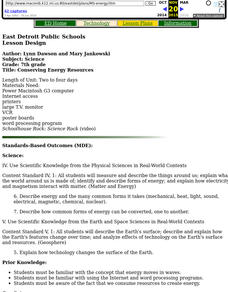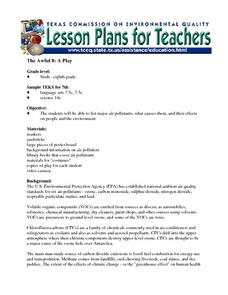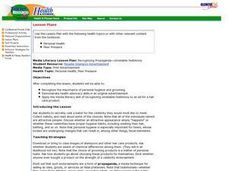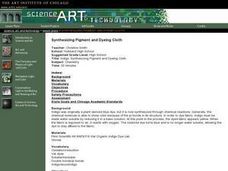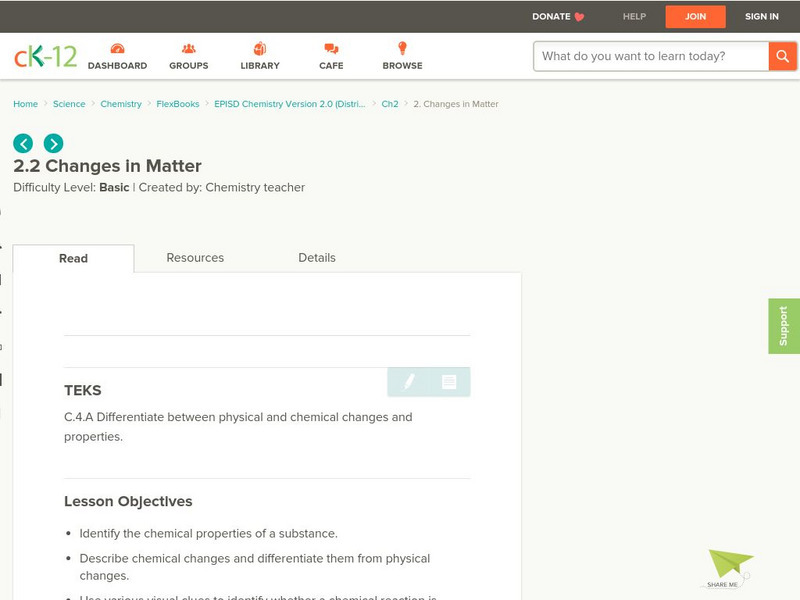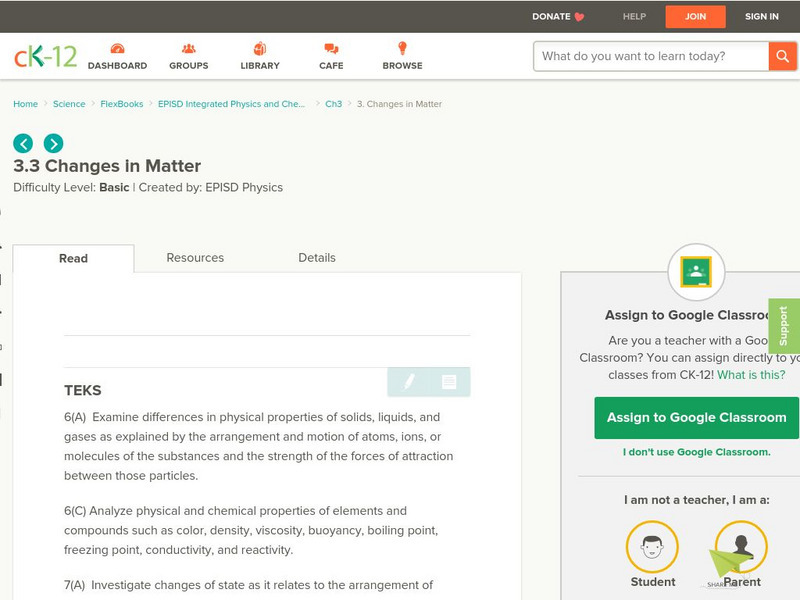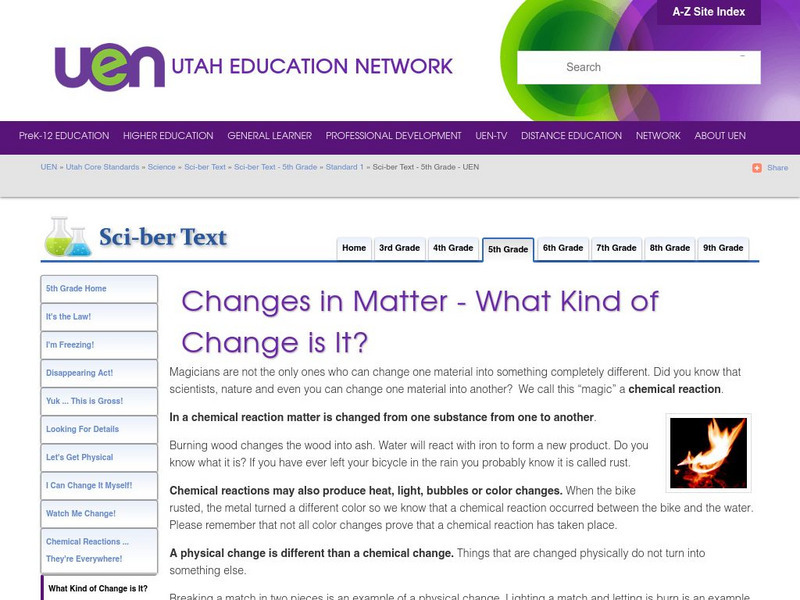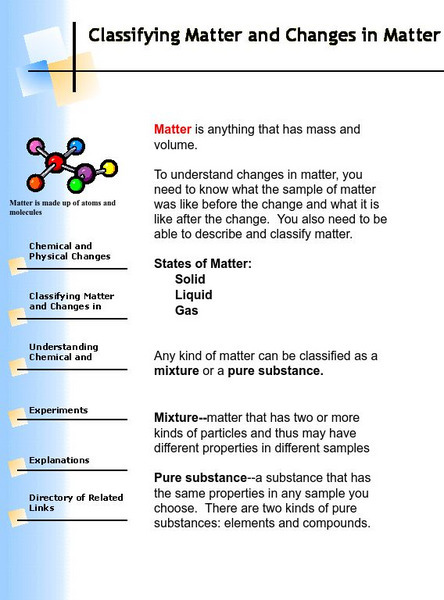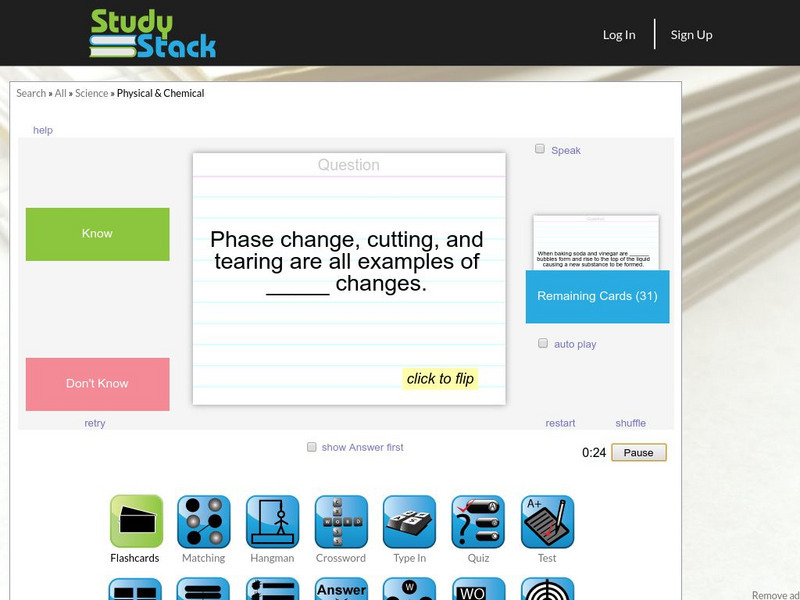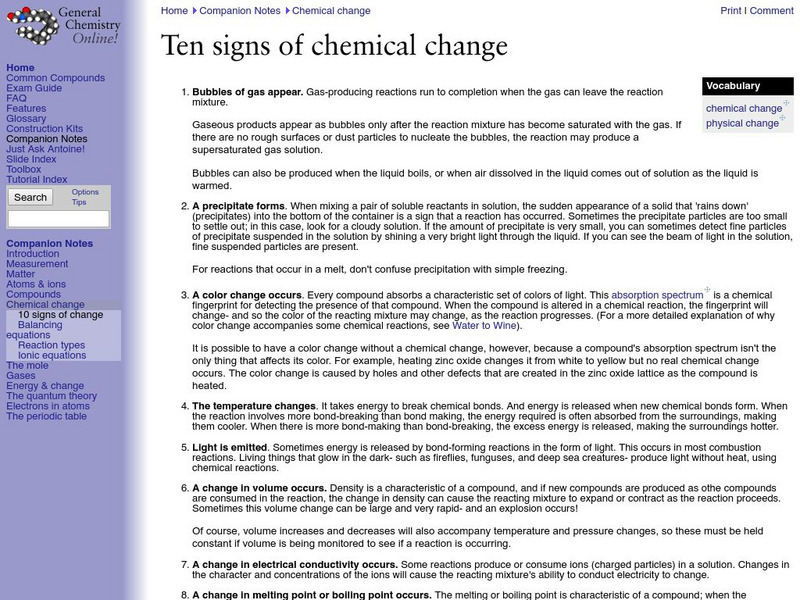Curated OER
Air Masses
Students examine the physical characteristics of several types of air masses to discover how air masses can be identified and defined by their temperature and moisture content.
Michigan Sea Grant
Water Quality
Learners observe water samples and measure the samples' water quality. Students develop their own criteria for measuring water quality and test for temperature, acidity, oxygen levels, turbidity, conductance, sediment and hardness.
Curated OER
Conserving Energy Resources
Seventh graders research on energy conversion. After they have researched several types of energy resources, teams of two to four create posters which depict how these resources can be conserved.
Curated OER
The Awful 8: A Play
Students perform a play that presents the causes and effects on people and the environment of the eight major air pollutants.
Curated OER
The Awful Eight
Students investigate the concept of a carpool and its contributions to either reducing or increasing air pollution. They conduct research using a variety of resources for background information. The information is used to write a play...
Curated OER
Recognizing Propaganda - Unreliable Testimony
Students investigate how product endorsements can be a form of propaganda. They analyze various shampoo ads, discuss celebrity endorsements and unreliable testimony, and create a written non-propaganda ad for or against a celebrity...
Curated OER
The Awful 8: The Play
Students become aware of the cause and effects of different air pollutants. They present a play about the different pollutants.
Curated OER
Synthesizing Pigment and Dyeing Cloth
Students create a synthetic dye and oxidize the dye and record the effects.
CK-12 Foundation
Ck 12: Fifth Grade: Physical Science: Physical and Chemical Changes in Matter
[Free Registration/Login may be required to access all resource tools.] Provides the definitions of physical and chemical changes in matter and gives examples. The law of conservation of mass is also described.
Other
Science4 Us: Changes in Matter
Through an instructional video, games, and activities, students explore three types of change matter makes: physical change, in which only the shape of the matter changes; physical phase change in which matter changes to a different form...
CK-12 Foundation
Ck 12: Changes in Matter
[Free Registration/Login may be required to access all resource tools.] In the following online tutorial students identify the chemical properties of a substance and describe chemical changes and differentiate them from physical changes....
eSchool Today
E School Today: What Is Matter
Learn about matter, its three states, changes of state, how matter behaves, and physical and chemical changes in matter.
CK-12 Foundation
Ck 12: Changes in Matter
[Free Registration/Login may be required to access all resource tools.] Students will describe methods for separating mixtures, such as chromatography, distillation, fractional distillation, evaporation, and filtration. They will also...
Utah Education Network
Uen: Changes in Matter What Kind of Change Is It?
Can you distinguish physical changes from chemical changes? After reading a brief summary of both types of changes, you'll be presented with some examples and asked to identify them.
Utah STEM Foundation
Utah Stem Action Center: Changes in Matter
The goal of this activity is to develop and use a model to describe that matter is made of particles on a scale that is too small to be seen. You will be making observations of changes supported by a particle model of matter.
Utah Education Network
Uen: Changes in Matter Chemical Reactions They're Everywhere
Can you distinguish physical changes from chemical reactions? You'll be presented with a number of pictures and asked to identify those which are examples of chemical reactions.
Other
Classifying Matter and Changes in Matter
Learn to identify changes in matter and explain what happens as matter changes. The lesson is supplemented with several experiments to reinforce key concepts.
Other
Study Stack: Changes in Matter
An online flashcard deck that reviews properties of matter. Test your knowledge of matter, chemical changes, and physical changes. Site allows you to put flashcards into two sections, those you know and those you don't. After separating...
ClassFlow
Class Flow: Physical and Chemical Changes
[Free Registration/Login Required] This flipchart introduces fifth graders to physical and chemical changes in matter. The Law of Conservation of Matter is also covered.
BioEd Online
Bio Ed Online: Finding the Carbon in Sugar
Students learn that fossil fuels release energy when they are burned, and this takes the forms of light, heat, gases, etc. In this activity they explore combustion with a candle and with sugar. The activity and accompanying PowerPoint...
Frostburg State University
General Chemistry Online: Ten Signs of Chemical Change
Resource provides the ten signs that tell when a chemical change has occured. Each sign has a detailed explanation.
Utah Education Network
Uen: Trb 5:1 Activity 6: Chemical Change
For this fifth grade activity, students explore how matter changes during a chemical reaction.
Scholastic
Scholastic: Dirtmeister's Science Lab: Matter
Step into Dirtmeister's Science Lab as he explores the challenge question: "How can you force a physical change in matter?" Learn about matter, make your predictions and then do the experiment.
American Chemical Society
American Chemical Society: Inquiry in Action: Teach Science Well
Online textbook reviews fundamentals of chemistry and physical science via slideshow presentations, notes, and videos. Materials for classroom activities engage students in inquiry-based, hands-on investigations covering molecular...




